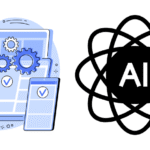 Cross Platform Development Communities – Connect with passionate developers worldwide. Explore forums, resources, and events dedicated to cross-platform development. Grow your network, skills, and career in a supportive community.
Cross Platform Development Communities – Connect with passionate developers worldwide. Explore forums, resources, and events dedicated to cross-platform development. Grow your network, skills, and career in a supportive community.
These thriving online developer communities offer a haven where knowledge on cross-platform app development doesn’t just grow; it multiplies, setting the stage for software to seamlessly transcend the barriers between devices and operating systems.
Key Takeaways
- Understanding the essentials of Cross Platform Development Communities and their burgeoning role in tech innovation.
- Identifying the advantages of engaging within online developer communities for cross-platform app development expertise.
- Appreciating the collaborative environment that fosters creativity and problem-solving among developers.
What Are Cross Platform Development Communities?
In the realm of modern software development, cross platform development communities have emerged as foundational elements driving innovation and collaboration. These communities represent interconnected groups of professionals, hobbyists, and enthusiasts who share a common goal: creating software that operates reliably across different hardware platforms and operating systems. In doing so, they enable applications to reach broader audiences by transcending the limitations of any single device or ecosystem.
At their core, these communities are composed of members with various roles, from seasoned developers to newcomers seeking to learn more about cross platform tools. Contributors can range from those providing support in developer forums to individuals writing and sharing code. The collaborative nature of these communities means that each member, regardless of expertise, can both learn from and contribute to the collective pool of knowledge.
The structure within these software development communities often follows a decentralized model, where the flow of information and problem-solving solutions is dynamic and community-driven. Developer forums, for instance, are frequently organized into specialized categories or threads, allowing for focused discussions on particular issues within cross platform development.
Not only are these communities facilitators of knowledge sharing, but they also serve as a launching point for leveraging powerful cross platform tools. Within such platforms, members can discuss the nuances of different tools, troubleshoot problems, and brainstorm on innovative ways to apply them to diverse development projects. Here’s a snapshot of what makes up these thriving communities:
- Collaborative Spaces: Online forums and chat rooms where ideas and experiences are exchanged frequently.
- Tutorial Hubs: Dedicated sections for educational content ranging from beginner guides to advanced tips and tricks.
- Project Showcases: Areas where developers can present their cross-platform projects and receive feedback or collaborate with peers.
- Tool Discussions: Threads dedicated to discussing cross platform tools, including their updates and possible integrations.
- Support Networks: Sub-communities focused on providing help for technical issues and answering pertinent queries.
As we venture further into the intricacies of these communities, it’s critical to understand how their types and unique structures align with the myriad needs of modern developers:
| Type of Community | Main Focus | Typical Features |
|---|---|---|
| Open Source Platforms | Collaborative development and sharing of free resources. | Code repositories, licensing discussions, project management tools. |
| Professional Networks | Networking and career growth within software development. | Job boards, skill workshops, industry news updates. |
| Educational Forums | Learning new skills and staying updated with cross platform technologies. | Tutorials, Q&A sessions, peer-to-peer mentoring. |
| Special Interest Groups | Deep dive into specific aspects of cross platform development. | Specialized webinars, focus groups, targeted collaboration projects. |
Communities focused on cross platform development are instrumental in not only providing support but also in fostering a culture of persistent learning and growth. They serve as the vital link between diverse cross platform tools and the developers who wield them, ensuring that the digital products of tomorrow can seamlessly integrate into our technology-driven world today. By participating in software development communities, developers can ensure that they stay at the forefront of technological advancements, evolving with the ever-changing landscape of multi-platform application development.
Benefits of Joining Web Development and Programming Communities

The universe of web development and programming is vast and continuously expanding, driven by an inexhaustible desire for innovation and improvement. In this ocean of knowledge, individual swimmers can sometimes struggle to keep up with the rapidly shifting currents. This is where the lifeboats of programming groups and web development communities come into the picture, offering a collective buoyancy to individual efforts.
Gaining Diverse Perspectives from Global Tech Communities
One of the most profound benefits of engaging with global tech communities is the acquisition of varied perspectives. As a microcosm of the broader, interconnected tech ecosystem, these communities are composed of individuals from all corners of the globe, each bringing unique experiences and viewpoints. This diversity nurtures a fertile ground for ideas to cross-pollinate, leading to innovative solutions and a richer understanding of software development and multi-platform development. The exchange that happens in these groups transcends geographical and cultural barriers, creating a melting pot of technological wisdom.
Here’s a closer look at how such diversity within tech communities can influence individual perspectives:
- Interaction with developers across different time zones can lead to around-the-clock problem-solving and support.
- The inclusion of multilingual contributors can provide insights into locale-specific user experiences, beneficial for cross-platform development resources.
- Collaborating with professionals who work under various regulations and compliance requirements can broaden one’s understanding of global software standards.
Mentoring and Skill Enhancement Opportunities
Moreover, the path of a developer is an ongoing journey of learning and growth—to stagnate is to fall behind. Within programming groups and web development communities, one can find an abundance of mentoring and skill enhancement opportunities that act as catalysts for professional development. Mentorship, in this context, is not merely a transfer of knowledge; it is a guide through the labyrinth of programming challenges and industry advancements.
The following table provides examples of online platforms that serve as valuable resources for mentoring and skill development:
| Platform | Focus Area | Mentoring Features | Skill Enhancement Benefits |
|---|---|---|---|
| Stack Overflow | Troubleshooting & Q&A | Expert answers, Community voting | Exposure to real-world coding problems, diverse technology stacks |
| FreeCodeCamp | Web Development Education | Interactive learning, Peer support | Curated curriculum, Project-based learning approach |
| Codecademy | Coding Skills | Professional-led courses, Interactive coding sessions | Hands-on project experience, Skill paths for focused learning |
| DEV Community | Software Development Blogging | Feedback from seasoned developers, Article collaborations | Enhanced technical writing, understanding of industry trends |
| GitHub | Collaborative Coding Projects | Mentorship through code reviews, Project discussions | Experience with version control, open-source collaboration |
Participation in these communities reaps more than just coding skills; it offers a holistic approach to personal branding, networking, and thought leadership. By engaging with supportive peers and industry experts, developers can elevate their status from that of a solitary coder to a well-rounded, multi-faceted tech professional.
The programming languages we speak might be binary, but the communities we build are unmistakably human. They represent a bridge between code and communication, a nexus where cross-platform development resources are shared not only through databases and forums but through authentic human interaction and mentorship as well.
Whether you’re troubleshooting a backend issue or optimizing a mobile app’s UI, it’s the shared journey with other community members that leads to increased proficiency and, ultimately, mastery.
The Importance of Multi-Platform Development in Today’s Tech World
The digital revolution has significantly diversified the tech ecosystem, setting the stage for multi-platform development to become an indispensable part of the software development landscape. Multi-platform development refers to the creation of applications that are compatible with multiple operating systems and devices, such as Windows, macOS, iOS, and Android. As technology advances and market demands evolve, developers are increasingly required to build software that provides a consistent user experience, regardless of the platform.
At the crux of this technological paradigm are tech communities—the lifeblood of innovation and shared knowledge. These communities act as melting pots of creativity, where developers from different backgrounds and expertise levels come together to discuss, develop, and refine technologies that cater to a multitude of platforms. The intrinsic value of these communities is crystallized by the interplay between seasoned professionals and novices, the exchange of unique solutions, and the relentless pursuit of improving user experiences across diverse hardware.
The recognition of multi-platform development as a fundamental standard is not without reason; it exemplifies the broad-reaching capabilities of software that can bridge the gaps between different user preferences and accessibility needs. Through collective effort within tech communities, the following facets of multi-platform development demonstrate its critical role in shaping the tech world:
- Wider Reach: Apps that function seamlessly across various devices and operating systems have the potential to reach a larger audience.
- Cost Efficiency: Developing one application that operates on multiple platforms can be more cost-effective than building several version-specific applications.
- Brand Consistency: Multi-platform development helps in maintaining consistency in branding, functionality, and user experience across all platforms.
- Future-Proofing: Applications designed to work on multiple platforms are more likely to adapt to new or evolving technologies with less redevelopment needed.
Furthermore, the symbiotic relationship between tech communities and multi-platform development is illustrated by the wealth of resources offered within these networks to aid developers in their multifaceted projects:
| Resource Type | Purpose | Benefits to Multi-Platform Development |
|---|---|---|
| Code Repositories | Sharing and collaboration on code | Enables reuse of code across different projects and platforms |
| Development Frameworks | Simplifying the development process | Provides tools and libraries specifically designed for multi-platform compatibility |
| Virtual Meetups | Networking and knowledge exchange | Opportunities for learning and discovering best practices in cross-platform projects |
| Challenges and Hackathons | Encouraging innovative solutions | Catalyzes the creation of novel multi-platform applications and features |
Multi-platform development in today’s tech world is not only technological necessity but also the shared vision and cooperative endeavors within tech communities. These digital collectives serve as the backbone for developers to transcend traditional platform limitations and pave the way for software that is as versatile as the devices it graces.
Popular Online Developer Communities for Cross-Platform Development
With the expansive growth of technology, cross-platform development resources have become invaluable to software engineers worldwide. Online developer communities have risen to become fundamental support structures, accelerating the growth and success of developers at every skill level. These platforms facilitate robust discussions, encourage the sharing of knowledge, and promote networking among peers which could be pivotal for a developer’s professional advancement.
Community Forums for Software Engineers
Programming forums serve as a nexus for software engineers seeking app development forums tailored to cross-platform development. These community forums are brimming with discussions on current trends, coding challenges, and innovative solutions to common and complex problems. Here, professionals can connect, learn, and grow with each other, making them an essential resource for both personal and professional development.
Highlighted below are the leading forums that have cultivated dynamic ecosystems for cross-platform development:
- Stack Overflow: A cornerstone of developer knowledge-sharing with a vast database of user-contributed Q&A.
- GitHub Community Forum: Offers a collaborative environment for discussing open-source projects and engaging with contributors.
- Reddit’s r/learnprogramming: Popular among beginners and experts alike for informal advice and discussion.
- XDA Developers: Specializes in mobile app development, with a strong focus on Android platforms.
- CodeProject: Provides a repository of articles, discussions, and projects.
Specialized Programming Groups and Networks
Specialized programming groups and networks allow for a more concentrated focus on cross-platform challenges. These typically smaller and more niche groups provide targeted discussion and direct interactions with experts experienced in cross-platform frameworks and languages. They offer advanced insights and trade practices that can be lost in more general programming forums.
Here are some of the specialized groups worth noting:
- Flutter Community on Discord: A hub for developers specializing in Flutter for cross-platform app development.
- React Native Community: Offers support and networking opportunities for developers using React Native.
- Xamarin Community Forums: A place for Xamarin developers to exchange ideas and get support from fellow members.
- The Apache Cordova Community: Provides resources and discussions aimed at Apache Cordova developers.
These specialized groups provide a deeper dive into the technologies that underpin multi-platform applications. By being part of such online developer communities, professionals can leverage collective expertise to overcome complex challenges.
To further emphasize the diversity of these platforms, below is a table comparing some of the key aspects of generalized and specialized communities:
| Forum Type | Target Audience | Typical Discussions | Unique Advantages |
|---|---|---|---|
| General Programming Forums | Broader developer community | Diverse technology topics | Widely varied perspectives and skill-sets |
| Specialized Programming Groups | Developers focusing on specific platforms or frameworks | Deep dive into niche topics | Direct access to experienced peers and focused resources |
| Local Developer Meetups | Community-driven local groups | Location-specific tech circles and events | Networking opportunities in a local context |
| Online Tech Networks | Professionals seeking career growth | Job listings, career advice, industry trends | Contacts that can translate to employment opportunities |
Joining both broad-spectrum programming groups and specialized programming groups enables cross-platform developers to access a wide array of cross-platform development resources. Each of these communities offers unique strengths, whether it be through varied tech discussions, focused expertise, or local and professional networking opportunities.
Top Cross-Platform Tools and Their Ecosystems

In the contemporary sphere of mobile app development, the importance of robust cross-platform tools cannot be overstated. These tools facilitate the creation of applications that operate on multiple operating systems, eliminating the need to write unique code for each platform. Hence, the focus on ecosystems that support these tools is paramount. This section delves into the leading tools in cross-platform app development and explores the vibrant ecosystems that sustain them.
The ecosystems provide a rich repository of resources, including libraries, plugins, and integrations that enhance the functionality and versatility of the tools they support. Moreover, the community element, such as cross-platform app development forums, plays a critical role. These forums act as a facilitator for knowledge exchange, troubleshooting, and networking amongst developers, thereby fostering a collaborative environment for innovation.
Let’s explore some pivotal cross-platform tools and the attributes of their respective ecosystems:
| Cross-Platform Tool | Main Feature | Complementary Ecosystem Elements |
|---|---|---|
| Flutter | Rich set of pre-designed widgets for UI development | Flutter Community on Discord, extensive packages in the Pub.dev repository |
| React Native | Native-like performance and look through React and JavaScript | React Native Community, Significant support on GitHub, vast npm libraries |
| Xamarin | .NET ecosystem with C# codebase sharing across platforms | Xamarin Community Forums, Microsoft Developer Network (MSDN) support |
| Apache Cordova | Hybrid app development using HTML, CSS, and JavaScript | Cordova Community, Plugin registry for extended capabilities |
| Unity | Powerful 2D and 3D game development with server-side scripting | Unity Developer Community, Asset Store for tools and assets |
Each cross-platform tool listed is complemented by a digital ecosystem designed to support and enhance its capabilities. The ecosystems encompass various aspects including community bridges in the form of forums or chat platforms, repositories for sharing code or plugins, and extensive documentation for learning and troubleshooting.
It’s essential to highlight the symbiotic relationship between the tools and their ecosystems. Developers utilize forums to discuss best practices, share insights on integrating new plugins from their repositories, and collaborate on solving common development challenges. For instance, in the Flutter ecosystem, a developer could tap into the shared wisdom on Flutter Community on Discord to enhance their application’s performance or user experience. Meanwhile, they might also utilize a newly released package available on Pub.dev to introduce innovative features with ease.
Beyond efficiency, these ecosystems also offer opportunities for developers to contribute back. Many provide ways to share custom-built plugins or components, contribute to documentation, or offer peer-to-peer support. This two-way exchange enriches the ecosystem and provides a robust support network for both seasoned and new developers venturing into the realm of mobile app development.
The leading cross-platform tools owe a significant portion of their success to the nurturing ecosystems which surround them. By engaging in these ecosystems, developers can harness collective intelligence to craft applications that are not only cross-functional but also high in quality, thanks to resources like cross-platform app development forums, repositories, and social platforms.
Comparing Mobile App Development Communities
Choosing the ideal community is a critical step for developers who engage in cross platform app development forums. With a plethora of mobile app development communities available, each offering unique features and support systems, developers have the opportunity to select communities that best cater to their specific needs. Below, we compare various communities to assist developers in making an informed decision.
Before diving into the comparison, it’s important to recognize the common goal shared across these spaces: to foster environments where professionals can learn, share, and collaborate on mobile app development. Notwithstanding this commonality, each community also brings its own set of resources and advantages to the table.
Cross platform app development forums often extend beyond discussion boards, involving extensive Q&A sections, collaborative projects, and shared resources. Meanwhile, web development communities may emphasize web-based mobile applications and might feature extensive documentation on relevant programming languages.
| Community | Focus | Key Features | Support Systems |
|---|---|---|---|
| Stack Overflow | General Development | User-contributed Q&A, Reputation system, Tags for filtering content | Moderated by community members, Extensive user base for diverse insights |
| GitHub | Project Collaboration | Code repositories, Issue tracking, Social coding environment | Collaboration with other developers, Contribution to open-source projects |
| Xamarin Forums | Cross-Platform App Development | Discussions on Xamarin usage, Updates on Xamarin developments | Direct feedback from Xamarin team, Peer support from Xamarin developers |
| CodeProject | Comprehensive Technology Coverage | Articles, code snippets, forums | Active community engagement, Regular content updates |
| Women Who Code | Diversity in Tech | Networking, Job board, Leadership development | Mentorship programs, Exclusive events and discussions |
Understanding the nuances between the various communities can aid developers in pinpointing which offer the resources that will be most beneficial for their growth and productivity in the realm of mobile app development. For instance, a professional focused on cross-platform tools might find specialized forums within the Xamarin Forums highly beneficial, whereas another seeking broad insights and diversity may gravitate towards communities like Women Who Code or Stack Overflow.
Ultimately, the diversity in mobile app development communities and web development communities means that there is a fit for every developer’s aspirations, whether they are looking for technical support, career advancement, or networking opportunities. The comparative table above serves as a guide, but the best community for any given developer will depend on individual preferences and professional objectives.
How Cross-Platform Development Forums Facilitate Knowledge Sharing

Cross-platform development communities have become pivotal in shaping a collaborative environment where knowledge sharing is not just encouraged but is a central tenet. These digital forums operate on the foundation of a collective commitment to advancing the field of software development through inclusive exchange of information, experiences, and insights.
At the heart of these forums are mechanisms designed to promote easy access to information and support real-time exchange between members. Here are some of the ways these communities simplify and foster knowledge sharing:
- Structured Discussion Boards: By organizing content into specific categories, users can easily navigate to the areas most relevant to their inquiries.
- Expert Contributions: Seasoned developers offer their expertise through detailed responses, guiding less experienced members through complex issues.
- Q&A Sections: Forums often feature sections where rapid-fire questions can be asked and addressed, cultivating a dynamic learning environment.
- Resource Repositories: Members share tools, libraries, and frameworks, enriching the community’s collective resource pool.
- Community-Driven Projects: Collaborative projects allow members to learn by doing, gaining hands-on experience that is generously shared within the forum.
- Real-Time Chat Functions: Instant messaging features support spontaneous brainstorming sessions and mentorship opportunities.
Key Elements of Developer Communities
The following table showcases the key elements that support knowledge sharing in developer communities, particularly those dedicated to cross-platform development, and how they contribute to a rich learning ecosystem.
| Element | Function | Contribution to Knowledge Sharing |
|---|---|---|
| User Profiles | Allows members to identify experts and connect with peers | Facilitates trust and fosters connections, making information exchange more personal and effective |
| Tagging Systems | Tags categorize content for easy retrieval and organization | Increases findability of specific topics, streamlining the search for relevant discussions and information |
| Reputation Systems | Reward members for positive contributions | Encourages quality responses and active participation, enhancing the knowledge base |
| Event Announcements | Inform members about upcoming meetups, webinars, and conferences | Spreads awareness of learning opportunities, extending knowledge beyond the digital realm |
| Project Showcases | Members present their work for feedback and collaboration | Offers practical case studies for learning and inspires innovation through shared challenges |
It is through these unique platforms that members of cross-platform development communities jointly elevate their expertise. The openness and adaptability of these forums allow for a seamless flow of expertise from one member’s stronghold to another’s area of growth, showcasing the true spirit of collaboration.
Finally, it is the unwavering willingness of community members to share their knowledge that guarantees the perpetual momentum of learning within these forums. Each contribution, whether a simple how-to guide or an in-depth technical breakdown, culminates in an ever-expanding repository of collective wisdom that is indispensable for both novices and experts alike in the world of cross-platform development.
Programming Languages and Their Cross-Platform App Development Forums
When it comes to mastering the art of cross-platform app development, programmers must navigate a diverse landscape of programming languages and tools. Central to this exploration are the vibrant coding communities dedicated to specific languages. These digital arenas offer a haven for knowledge exchange, fostering growth for both aspiring and seasoned developers.
Finding the Right Coding Communities for Your Preferred Language
Identifying the right coding communities is instrumental in staying abreast of the latest programming languages and techniques in cross-platform app development. Whether you’re looking to sharpen your skills in a familiar language or venture into new linguistic territories, there is a plethora of forums ready to welcome you into the fold. To align with your development goals and interests, consider the following strategies:
- Evaluate the community’s activity level and responsiveness to ensure you can get timely help and participate in live discussions.
- Seek out forums where ongoing projects and code samples are shared, providing practical insights and hands-on learning opportunities.
- Choose communities with a rich library of resources, from tutorials to documentation, tailoring your learning to your current proficiency level.
- Ensure that the community encourages peer-to-peer support and mentorship, offering a collaborative environment for problem-solving.
- Look for a diverse membership that includes professionals from various backgrounds to gain a holistic view of cross-platform app development.
The right community should not only resonate with your current knowledge but also challenge you to reach new heights in app development. To streamline your search, we’ve compiled a table showcasing popular languages and their corresponding communities:
| Programming Language | Coding Community | Notable Features |
|---|---|---|
| JavaScript | Stack Overflow, GitHub, Dev.to | Wide range of discussions, active contribution to open-source projects, and diverse resource sharing |
| Dart (Flutter) | Flutter Community on Discord, FlutterDev on Reddit | Targeted discussions on Flutter, networking opportunities, and Q&A sessions for troubleshooting |
| C# (Xamarin) | Xamarin Community Forums, MSDN Forums | Direct support from Xamarin experts, integration with Microsoft’s ecosystem, valuable insights on .NET |
| React Native (JavaScript) | React Native Community Discord, Spectrum Chat | Collaboration with React Native developers, shared learning experiences, and extensive networking |
| Kotlin (for Android) | Kotlinlang Slack, JetBrains Forums | Specialized Kotlin guidance, integration with Android Studio, and shared best practices |
Engaging with the communities built around your chosen programming languages can exponentially expand your understanding and dexterity with cross-platform app development. Through active participation, you can assimilate novel coding techniques, gain insights into industry standards, and ultimately elevate the quality of your applications. Embrace the collective wisdom these forums offer, and ready yourself to contribute your unique voice to the ever-evolving world of app development.
Conclusion

Throughout this exploration of cross platform development communities and app development forums, we’ve delved into the heartbeat of today’s tech innovation landscape. These communities are catalysts for growth, offering a vibrant gathering place for novices and gurus alike to converge, collaborate, and cultivate the next wave of cross-platform applications. A treasure trove of shared knowledge, they are instrumental in maintaining the pulse of the ever-evolving world of technology.
In these dynamic forums, every query sparks a conversation, every challenge leads to collective problem-solving, and every shared code snippet helps write the future of a more integrated digital environment. As members of these robust tech communities, developers gain the unique opportunity to not only expand their skills and understanding but also to shape the methodologies and technologies that will define the future of software development.
As we’ve seen, the benefits range from knowledge acquisition and networking to actualizing a collaborative vision for seamless user experiences across varied devices and platforms. Therefore, I encourage you, the developer, the dreamer, the disruptor, to dive into the sea of possibilities that these tech communities offer, for in them lies the power to unlock your fullest potential.
External Resources
FAQ

What are Cross Platform Development Communities?
Cross Platform Development Communities are collaborative online groups where developers, software engineers, and tech enthusiasts converge to discuss, share knowledge, and innovate on creating software that works across multiple operating systems and platforms. These communities leverage forums, social media, specialized networks, and other mediums to support cross-platform app development and the use of diverse cross platform tools.
Why are software development communities important for multi-platform development?
Software development communities play a crucial role in multi-platform development by offering a shared space for developers to exchange ideas, solve common challenges, and share resources and strategies for building applications that function seamlessly across different platforms. They are integral for staying up-to-date with the latest technological trends, tools, and best practices in the tech world.
What kinds of support can I find in online developer communities for cross-platform development?
In online developer communities, members can find a variety of support options including peer-to-peer advice, access to tutorials and documentation, collaborative problem-solving, opportunities for networking, and insights into using cross-platform development tools. Members often benefit from code-sharing, mentorship opportunities, and staying updated with the latest industry news.
How do I choose the right cross-platform app development forums and communities?
When choosing the right forums and communities, consider factors such as the focus of the community (whether it aligns with your interests and goals), the level of activity and engagement within the community, the quality of content shared, and the opportunities for networking and professional growth. Additionally, look for forums with well-established moderation and a supportive environment.
What are some popular cross-platform tools and their ecosystems?
Popular cross-platform tools include frameworks like Flutter, React Native, Xamarin, and Unity. Each comes with its own community and ecosystem encompassing documentation, tutorials, plugins, and active forums where developers share their experiences and collaborate to enhance the tool’s capabilities and support app development.
What is the benefit of joining web development and programming communities?
Joining web development and programming communities can provide a wealth of benefits, including learning from developers all around the world, gaining access to diverse perspectives, finding mentorship, participating in skill enhancement opportunities, and staying current with new programming languages and technologies that support cross-platform development.
How can cross-platform development forums facilitate knowledge sharing?
These forums provide organized platforms that include discussion boards, resource libraries, and real-time communication channels. Such structure allows for the efficient dissemination of information, gathering of feedback, and collective troubleshooting, which empowers members to expand their knowledge base and contributes to the wider community’s advancement.
How do I identify the right coding communities for my preferred programming language?
To find the right coding communities for your preferred programming language, start by researching platforms dedicated to that language, looking into the size and activity level of their membership, the resources they offer (like workshops, webinars, and code repositories), and the overall ethos of the community—whether it’s more geared towards support, education, or professional development.
Can engaging with cross-platform development communities help with personal growth?
Engaging with cross-platform development communities not only bolsters your professional skills and knowledge but also contributes to personal growth. It allows you to develop soft skills like communication and collaboration, build confidence in problem-solving, and gain inspiration from like-minded peers that can spark creativity and innovation in your personal projects.
William is a highly accomplished technical author specializing in cross-platform app development. With a rich background in the tech industry, he has worked at prestigious companies like Uber and Facebook, where he honed his skills as an iOS developer since 2009. Throughout his career, William has been an advocate for leveraging frameworks like React Native and Xamarin to create innovative and efficient cross-platform mobile apps.
Having pursued a degree in Computer Science and Mathematics at Caltech, William is equipped with a strong educational foundation. Currently residing in LA with his two daughters, he finds solace in exploring the scenic hills through hiking. Passionate about knowledge sharing, William not only builds cutting-edge applications but also takes pleasure in teaching students how to develop their own cross-platform mobile apps. His expertise, combined with his dedication to empowering others, makes him an invaluable asset in the field of app development.







